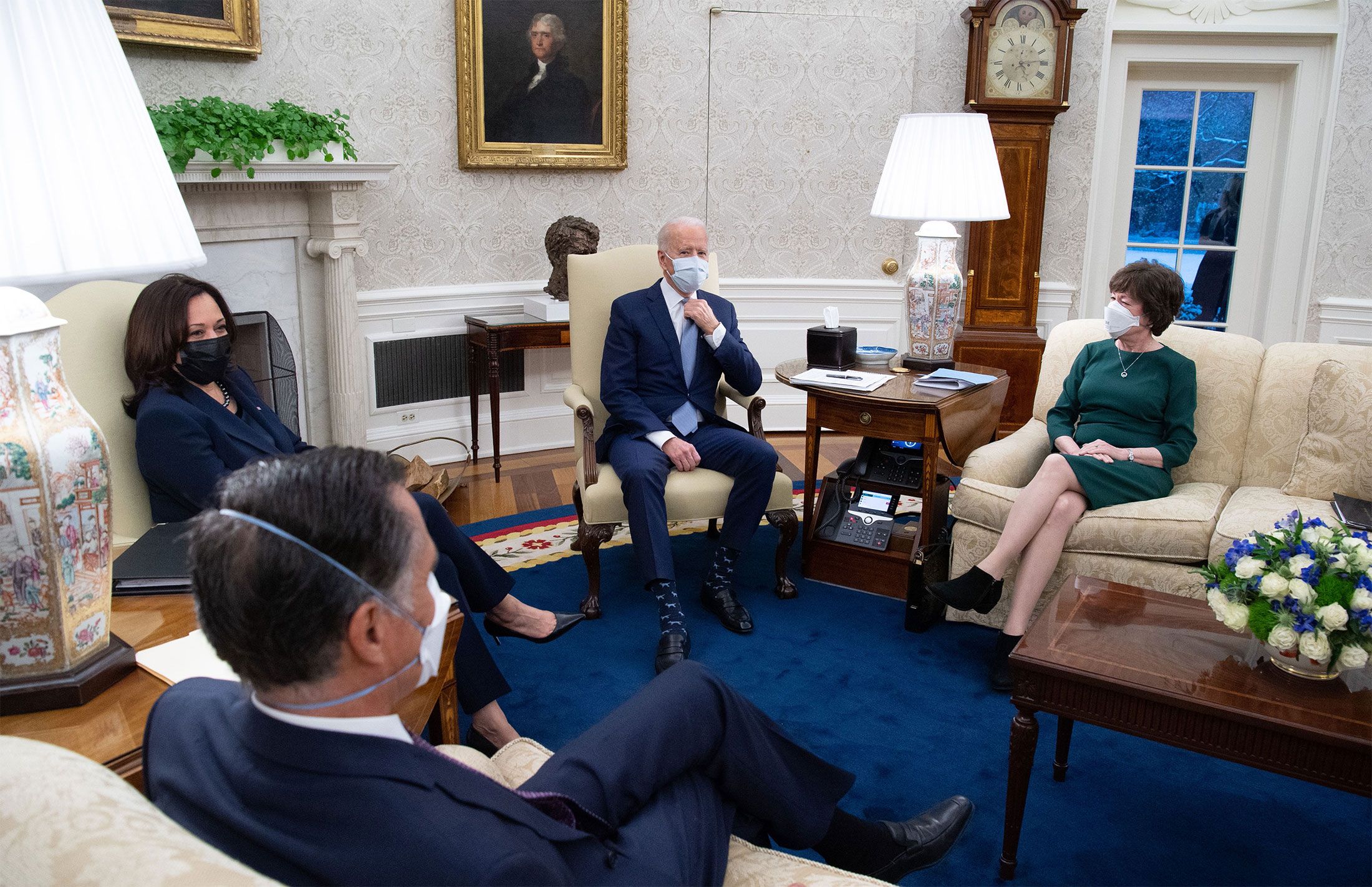The Senate embarks Thursday on a late-night frenzy of mostly nonbinding votes as part of a process that will allow Democrats to pass President Joe Biden’s $1.9 trillion pandemic-relief plan without needing any Republican support.
Any senator can offer amendments to the budget resolution that paves the way for the actual stimulus bill. In this “vote-a-rama” most measures will be symbolic votes unrelated to pandemic relief, giving both parties the opportunity to force politically fraught votes on issues including immigration, abortion and climate change without actually affecting the eventual coronavirus-related bill.
Senate Republican Leader Mitch McConnell promised to force “a host” of votes putting Democrats in a tight spot. Between the two parties, 558 amendments have already been filed.
“We’ll be getting senators on the record about whether taxpayers should fund checks for illegal immigrants, whether Democrats should raise taxes on small businesses in the midst of this historic crisis and whether generous federal funding should pour into school districts where the unions refuse to let schools reopen,” McConnell said Wednesday.
The long slog of floor action on Thursday is another example of how arcane parliamentary procedures can be manipulated or weaponized to achieve political goals, especially when the 100-member Senate is evenly divided.
The stimulus bill already shows a willingness from Biden, a creature of the Senate, to move ahead with a Democrat-only process if he can’t win Republican backing to fulfill a major campaign promise.
It’s ‘nonsense’
McConnell criticized Democrats for using the budget reconciliation process for the stimulus bill. Reconciliation allows certain fiscal legislation to pass the Senate with a simple majority, rather than the 60-vote threshold needed to end a filibuster. Republicans have also used the process, most recently to try to repeal the Affordable Care Act and to pass the 2017 GOP tax law.
Amendments to the budget resolution are generally nonbinding but can expose divides within a party or be used against lawmakers the next time they seek re-election.
Democrats are trying to dismiss the vote-a-rama as an attempt to set up future political ads rather than legislate.
“It is nonsense and everybody should ignore it,” Democratic Senator Brian Schatz of Hawaii said on the Senate floor Wednesday. “It is boring and it is the worst part of the United States Senate, but it is a very important means to an end.”
Senator John Thune, the No. 2 Republican, said he expects the vote-a-rama to start at midday Thursday. The votes then go continuously until senators stop insisting on them — often into the early hours of the next day.
The amendments rotate by party, so both sides have some incentive to cut off the process lest they expose their more vulnerable members to awkward votes.
Thune expects perhaps three votes an hour, for a total of maybe 36 by about 1 a.m.
Amendment parade
While leaders and many senators tend to dislike the vote-a-rama, it’s a rare opportunity for backbenchers and potential future presidential candidates to put the Senate on record on a pet issue or try to show off for their political bases.
Marco Rubio of Florida alone announced about two dozen amendments, including increasing the child tax credit, preventing an expansion of the Supreme Court and putting assorted restrictions on Chinese companies. He even has a provision on spaceport bonds.
Josh Hawley of Missouri tweeted that he’ll offer amendments “to take on corporate power,” while preventing aid from going to school systems that haven’t reopened during the pandemic.
When the parade of amendments is over, the Senate will take a final vote to pass the budget resolution, requiring a simple majority. If every senator shows up and votes on a party-line basis, Vice President Kamala Harris would need to be on hand to cast her first tie-breaking vote.
This would allow Democrats to try to pass the actual stimulus bill by early March before extended unemployment benefits expire. And while Democrats say they welcome Republican input, and many previous reconciliation bills have had bipartisan support, no Republican so far backs anything close to what Biden has proposed.
Ten Republicans this week met with Biden to discuss a counteroffer of just over $600 billion, which didn’t include the $350 billion in aid to state and local governments that Democrats have sought. It also included skimpier extensions of unemployment benefits, school aid and direct checks, among other issues.
— With assistance from Erik Wasson